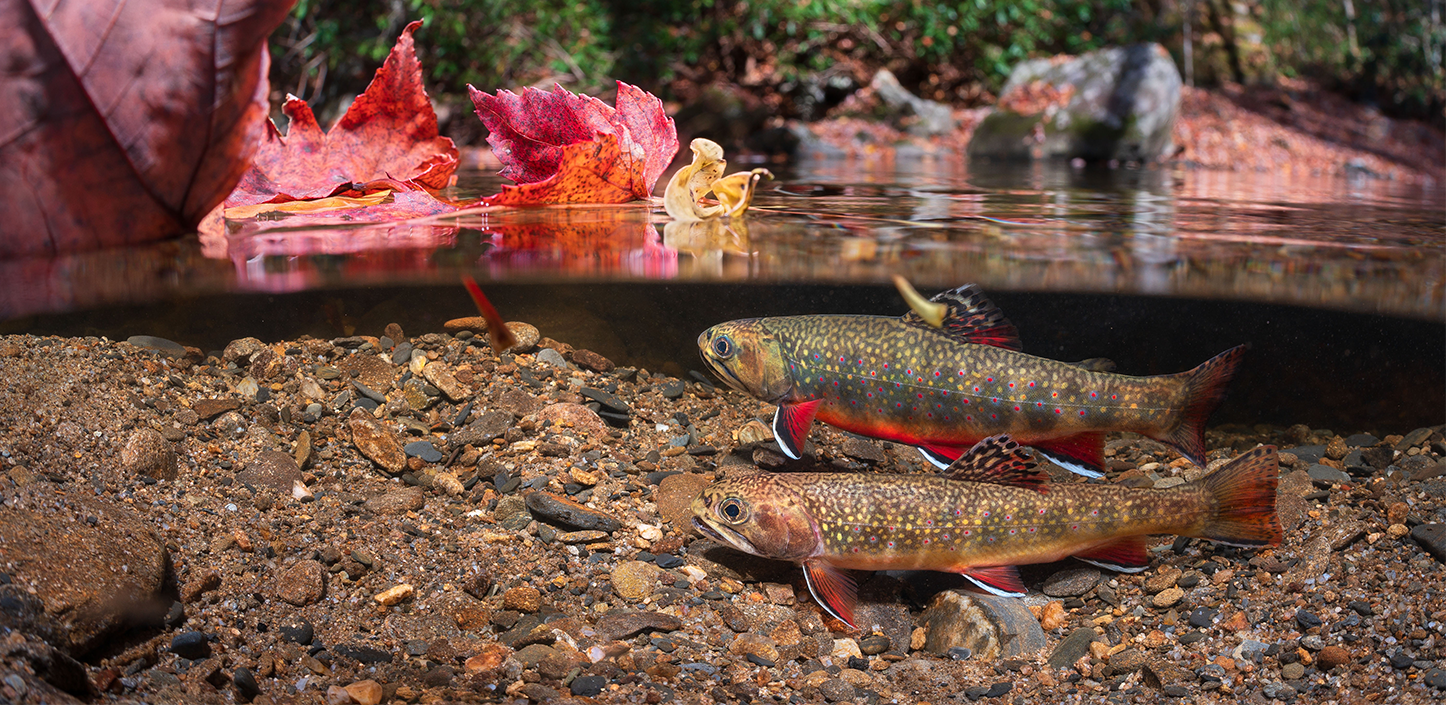
Reconnecting streams in the Appalachian Mountains
Think about brook trout as an Appalachian early warning system: If they’re not where they’re supposed to be, something’s wrong. Too much silt has washed into their stream, covering gravelly spawning grounds. An old, failing road culvert has blocked their ability to move around a given stream system. Healthy stream-side forests have disappeared, along with their essential shading, filtering and water-slowing functions.
Fortunately, many of these watershed ills can be remedied. But keeping Appalachian streams clean, cold and connected for brook trout requires tough, gritty and sometimes expensive work. Throughout 2024, NFWF continued to fund such vital projects through conservation programs and funding partnerships focused on central Appalachia and the upper reaches of the Chesapeake Bay watershed.
Many grants focused on brook trout strongholds in small rural communities that couldn’t afford to tackle such projects on their own, but will still reap the benefits of cleaner drinking water, modernized road-stream crossings, tourist dollars from fly-fishing aficionados and, of course, top-notch fishing right down the road.
Throughout Appalachia, work crews funded by NFWF grants are now putting boots on the ground, and waders in the water, to restore trout habitat in places like Deer Lick Hollow and Hammer Creek in Pennsylvania, Halfmoon Run and Lost River in West Virginia, Savage River and Double Pipe Creek in Maryland, and Quassaick Creek and Cohocton River in New York.
One 2024 grant of $936,800 to Trout Unlimited enabled the nonprofit to reconnect brook trout strongholds in central Pennsylvania by replacing failing, undersized culverts and reducing sediment pollution. Crews also strategically placed large woody structures into streams to slow the flow of water, fight erosion and establish deeper pools into which trout can retreat during summer heat or winter freezes.
Watch: NFWF and Trout Unlimited team up to conserve habitat for brook trout in West Virginia
Contributing Partners: Altria Group, Chesapeake Bay Program, Cleveland-Cliffs, Richard King Mellon Foundation, U.S. Environmental Protection Agency, U.S. Fish and Wildlife Service, U.S. Forest Service, USDA Natural Resources Conservation Service
This story originally appeared in NFWF's 2024 Annual Report.